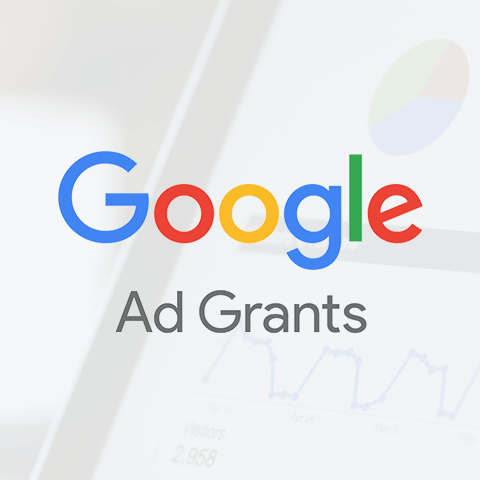Google Ad Grants Changes for Your Nonprofit

Guest post by Stephanie Higinbotham with SH Marketing
Over the past 6 months, Google has been making very important updates to both their algorithm and their Google Grants program. Starting January 1, 2018, Google Grantees now have even more boundaries to navigate between in order to remain eligible for the $10,000 of monthly free advertising.
New CTR Requirement
First and foremost, the most noteworthy change is the new requirement to meet an account-wide average click-through rate (CTR) of 5% or greater. In most cases, this number is very attainable by optimizing your ad copy and your landing pages. Please note that it does not matter if some of your campaigns are under the 5% threshold as long as your account average meets or exceeds that number. This update is most noteworthy because if your account does not meet this criterion, Google will suspend your account until you make the necessary changes to increase your ad relevancy and, subsequently, your click-through rate.
No More $2 Bid Cap
Secondly, Google has now removed the $2.00 bid cap by allowing Google Grantees to enable the Maximize Conversions bidding feature. When this is enabled, you essentially give Google permission to dynamically increase and/or decrease your Max CPC bids when their algorithm deems a conversion likely to occur. In order to use this method, you must first set up conversion tracking. You may do so in either Adwords or Analytics, but in either scenario conversions must be tracked in the Adwords interface in order for Maximize Conversions bidding to work. Typically, I’ve seen this method perform best when campaigns have ample conversions in their historical data because it gives the algorithm more information to go off of. I recommend testing a campaign or two instead of switching your entire account over; while Maximize Conversions can be a great solution for some campaigns, it is not a one-size-fits-all answer. In fact, many campaigns may not need to overcome the $2.00 bid cap because they may not have much competition.
No Brand Name Bids
Third, Google Grantees are no longer allowed to bid on other brand names or on single-word keywords that do not relate to the name of their organization. Typically, with Google Grants accounts, I recommend only using broad match for your keywords and, because they’re broad match, being sure to use phrases rather than individual words so you don’t show up on weird searches. Moving forward, be sure to audit your account for either of these violations to ensure you stay eligible and your ads are not disapproved. There are some situations, such as in donation-oriented keywords or when targeting similar audiences that this will impact traffic. For example, many people search for “goodwill” or “salvation army” when looking to donate; we are no longer allowed to include these keywords in our campaigns even though we may still show up for some of these searches because of our use of broad match. Please note: you will not be penalized for showing up on searches that include other brand names. You will only be penalized if they are in your account. You can audit this by scrolling through your keywords tab.
Required Surveys
Lastly, Google will now be alerting users of surveys, new product alerts, and more via the notifications in the Adwords dashboard. You will find these when you click on the bell icon in the top right corner of the page. Previously, these surveys, etc. were optional and customers were notified via email. This is no longer the case. They will only be released approximately once a year, but they are now mandatory for all Google Grants users under penalty of account suspension.
These changes have already taken place, and although Google did not provide a timeline for when they will start doling out penalties for non-compliance, we estimate things to start taking hold in Q2 of 2018. If you have questions or need help auditing your account, please reach out.

